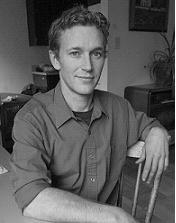Myth, Martyrdom and the MacKinnons
 Among the many dead from the rebellions, coups, and countercoups that wracked the Dominican Republic during the 1960s, there was a Canadian priest, Arthur MacKinnon, the seventh of nine sons of a Cape Breton coal miner. He is remembered among many Dominicans as Padre Arturo, the martyr.
Among the many dead from the rebellions, coups, and countercoups that wracked the Dominican Republic during the 1960s, there was a Canadian priest, Arthur MacKinnon, the seventh of nine sons of a Cape Breton coal miner. He is remembered among many Dominicans as Padre Arturo, the martyr.Despite the several conflicting accounts of the priest’s death, they all agree that on the night of June 22, 1965, Padre Arturo was killed in a barrage of gunfire on the outskirts of the village of Monte Plata. It was a dark time in the country’s history. Only a few weeks before, the United States government declared the Dominican Republic to be on the brink of a communist takeover, and thousands of American soldiers had invaded.
Had he lived, Padre Arturo would have been a paternal uncle to 35-year-old Vancouver journalist J.B. MacKinnon, pictured above. Instead, the dead priest became a mythic figure in MacKinnon’s boyhood imagination, the rebel hero of MacKinnon family lore: a blood sacrifice, a martyr to the cause of the poor and oppressed. Padre Arturo’s legend lingers in a similar way in parts of the Dominican Republic. He’s a little bit of Che Guevara, the dashing young Argentine whose military genius helped win the Cuban revolution, and a little bit of Oscar Romero, the assassinated “people’s bishop” of El Salvador.
MacKinnon, an award-winning travel writer, was never quite satisfied with the myth. He wanted the truth about his uncle, and he wanted to reconstruct it from the old-fashioned stuff of facts. So he set out to attempt that, and the result is Dead Man in Paradise (Douglas & McIntyre, $22.95). It’s a bit like a John le Carré spy thriller and a bit like a Raymond Chandler detective novel, but it’s also a stirring memoir, and a testament to the enduring virtues of literary journalism, besides.
MacKinnon had little to work with at the outset. There was just the family story, some letters, a diary, newspaper clippings, and other such bits and pieces. To these he added autopsy reports and inquiry findings, and what soon became evident was that no one had come close to resolving the mystery of Padre Arturo’s death. Still, MacKinnon reckoned he had to try, and he spent several months asking unwelcome questions in the Dominican Republic, methodically reconstructing scattered shards of evidence into a compelling case of his own.
The story winds through old graveyards and kitchen-table conversations with his uncle’s surviving comrades, and it snakes through the homes of decrepit generals and the offices of coup-era politicians. Everybody holds a small piece of the puzzle, and the narrative trajectory of Dead Man in Paradise is the same story that slowly revealed itself to MacKinnon, with all its twists and turns, revelations and blind alleys, disappointments and surprises.
“I wanted everything to come out of what I saw, tasted, heard, and smelled…I didn’t try to see what clever things people were doing in this year’s books, and I don’t use pop-culture references,” MacKinnon said during a recent conversation. “I just wanted to maintain the authentic experience.”
Still, even after MacKinnon makes flesh and blood of him, Padre Arturo loses nothing of his heroism. But it’s not the grand heroism of a mythic figure. It’s the quiet heroism of ordinary people in times of war and revolution. Arturo was no zeal-consumed Che Guevara. He was no Oscar Romero orator. He certainly wasn’t a Mother Teresa, content to comfort the dying. He was a old-fashioned working-class Catholic from Cape Breton who saw a grievous offence against God in the violence and suffering being visited upon the Dominican poor.
MacKinnon is no Catholic, but he is no stranger to myth, either. His father and one of his four brothers did duty in Nicaragua as peace activists, and his childhood involved the rituals of church-basement slide shows about oppression in El Salvador and Guatemala.
Myth is a dangerous thing, MacKinnon points out.
“The big lesson for me in the Dominican Republic was the way this stuff lingers,” he says. There are people still in hiding, 40 years after the violence of the 1960s, for instance. Blood feuds persist, old grudges carry on, and wars rage in memory, from generation to generation.
It’s those deep cultural currents that tend to go unconsidered in the ongoing argumentation about military intervention in countries such as Iraq and Afghanistan, MacKinnon says.
“The weight of history, the weight on the future—these things never seem to come into the discussions,” MacKinnon says. “I don’t even like to think about how that stuff is going to play out in personal stories . . .thousands of stories playing out in personal ways, for so, so long.”
J.B. MacKinnon appears in conversation with Charles Montgomery and the Vancouver International Writers Festival’s Hal Wake on Thursday (October 20) at 8 p.m. at the Waterfront Theatre.
( this article ran as my fortnightly Chronicles column in the October 13 edition of the Vancouver weekly, The Georgia Straight http://www.straight.com/ )





0 Comments:
Post a Comment
<< Home